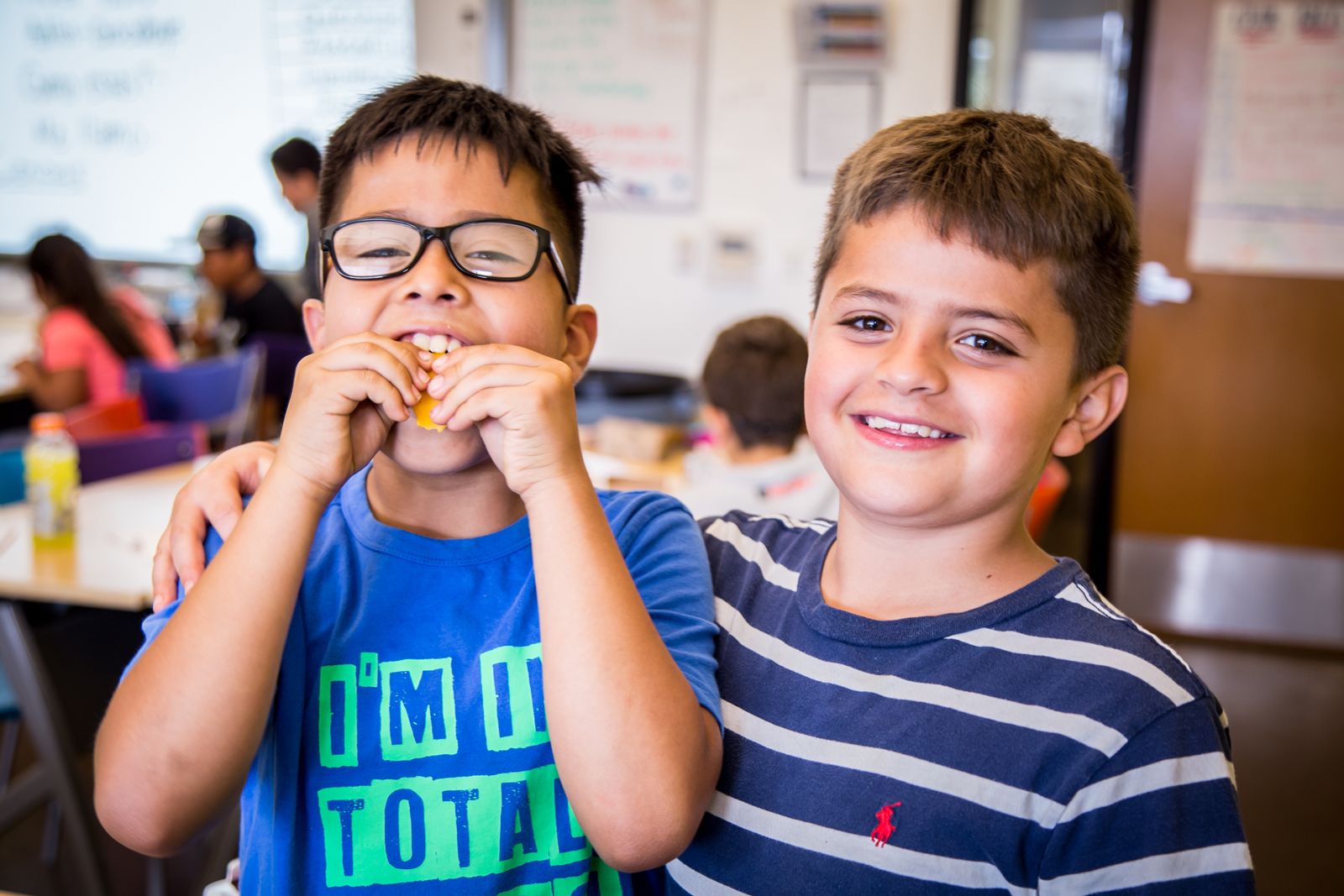Preventing Childhood Hunger This Summer
When the school year ends, tens of thousands of North Texas students rely on summer meals programs to access regular nutritious meals and to keep hunger at bay.
During the last two summers, the COVID-19 pandemic disrupted and changed summer meals programming significantly. And while this year’s programs will be somewhat of a return to normalcy, summer meal providers are facing new challenges as they work to feed tens of thousands of local kids.
Read on to learn more about our work with summer meals providers, our impact in 2021, and challenges and opportunities for 2022.
Preventing Childhood Hunger
At United Way of Metropolitan Dallas, we understand that nutrition is a key part of health—which along with education and income form the building blocks of opportunity. Regular, healthy meals are a necessity for children to be able to learn and grow.
That’s why we partner with dozens of local school districts, nonprofits and other organizations to support the prevention of hunger and provide a necessary resource for hard-working families during the summertime months.
In 2013, we partnered with Baylor University Collaborative on Hunger and Poverty to launch the North Texas Summer & Supper Council (NTXSSC). Our work with NTXSSC supports summer meals programs as they provide millions of meals to children throughout Dallas. These include local school districts, such as Dallas and Garland ISDs, and nonprofits like CitySquare and Equal Heart.
Our Collective Impact
The pandemic pushed the demand for summer meals to unprecedented levels.
In a typical summer, NTXSSC works with more than two dozen groups that serve more than 2 million meals to 55,000+ children. In 2020, the pandemic created a spike in demand as many families lost their income and struggled to pay for necessities like groceries. That year, North Texas sponsors served more than 10.2 million meals in Dallas and Collin counties—more than four times the number of summer meals served during a normal year.
In 2021, demand was even higher, and North Texas meal providers delivered a total of 12,211,300 summer meals within Dallas and Collin counties. Thanks to supporters like you, NTXSSC was able to get the word out to more families and provide both in-person and drive-through meals.
For many children, these meals keep them from going hungry at least part of the day. Research by the North Texas Food Bank found that in 2021 one in five kids lives in a food-insecure household. That means at least 300,000 children don’t have consistent access to enough food to live an active, healthy life—which can hurt their development, their performance in school and even their ability to enjoy time with friends and family.
Challenges and Opportunities for 2022
This summer, meal providers will be returning to their pre-pandemic format, with children eating in person at various sites throughout North Texas and enjoying some fun group activities with their peers. Families will no longer be able to access meals through bulk pick-up or grab-and-go lines, because federal child nutrition wavers, which made it easier to provide food quickly and in a socially distanced manner, are set to end June 30.
As Ashley Douglas, senior director of the United Way Southern Dallas Thrives initiative, explains, “This will be the first attempt for full in-person programming by many program sponsors since 2019. It will truly be a transitional year. The hope is that parents feel safe and excited about enrolling their children into summer programming at various locations throughout the metroplex.”
The shift back to in-person summer meals is good news for kids who have missed out on the supplemental programming that summer meals providers deliver, such as learning opportunities, arts and crafts, water balloon fights, bounce houses and games. However, due to the loss of many federal waivers that enabled countless local families to weather the financial challenges of the last two years, we do expect to see some program shifts.
Julie Fletcher, director of support services for Dallas ISD’s Food and Child Nutrition Services, explained that although demand for summer meals should be lower this year, North Texas families still need the same level of support due to inflation, rising gas prices, parents working multiple jobs and other factors.
“Nutrition needs for growing children don’t stop at the end of the school year,” Fletcher said. “Summer meals help children bridge the gap from not having school meals. And with supply chain issues and inflation raising the cost of food, families can rely on summer meals to help provide healthy foods for their children.”
Supply chain issues and inflation are also hitting summer meal providers like Dallas ISD. Fletcher said she has seen the cost of some foods increase by up to 40%. Meanwhile, supply chain disruptions have made it nearly impossible to access certain foods and supplies, and staffing shortages are making distributing meals a challenge.
As Kristen Chan, coalition child hunger specialist with Baylor University Collaborative on Hunger and Poverty, explains, “Summer meal programs may look very different this year for the kids and families. We all hope for a return to normal, but families need continued help to feed their kids this summer and beyond.”
Support Summer Meals in North Texas
Although summer meals programs are returning to many of their pre-pandemic formats, these are far from normal times. More than ever, summer meals providers will require support from the NTXSSC to ensure they can meet the demand for regular, nutritious meals throughout the summer break.
At United Way, we recognize that childhood hunger is a community problem, and it requires a community-wide solution. Now is the perfect time to join our movement and have a direct and positive impact on North Texas families. This summer, there are two easy ways to get involved:
- Give: Investing in United Way of Metropolitan Dallas is one of the most impactful ways to create positive change right here at home. When you make a donation today, your gift will support initiatives like the North Texas Supper & Summer Council, enabling support for our partners who will continue to serve students this summer.
- Volunteer: This month, you can sign up to assist with our 2022 Summer Meals Kickoff, held June 22 at Beckley-Saner Rec Center in Dallas. We’re looking for volunteers to host games and activities for kids at this fun-filled community event.

A big thank you to Mr. Cooper Group and Vistra Corp., presenting sponsors of the North Texas Supper & Summer Council Summer Meals kickoff this year. We appreciate your help in bringing awareness to the program and supporting the important work of this year’s summer meals distributors.











